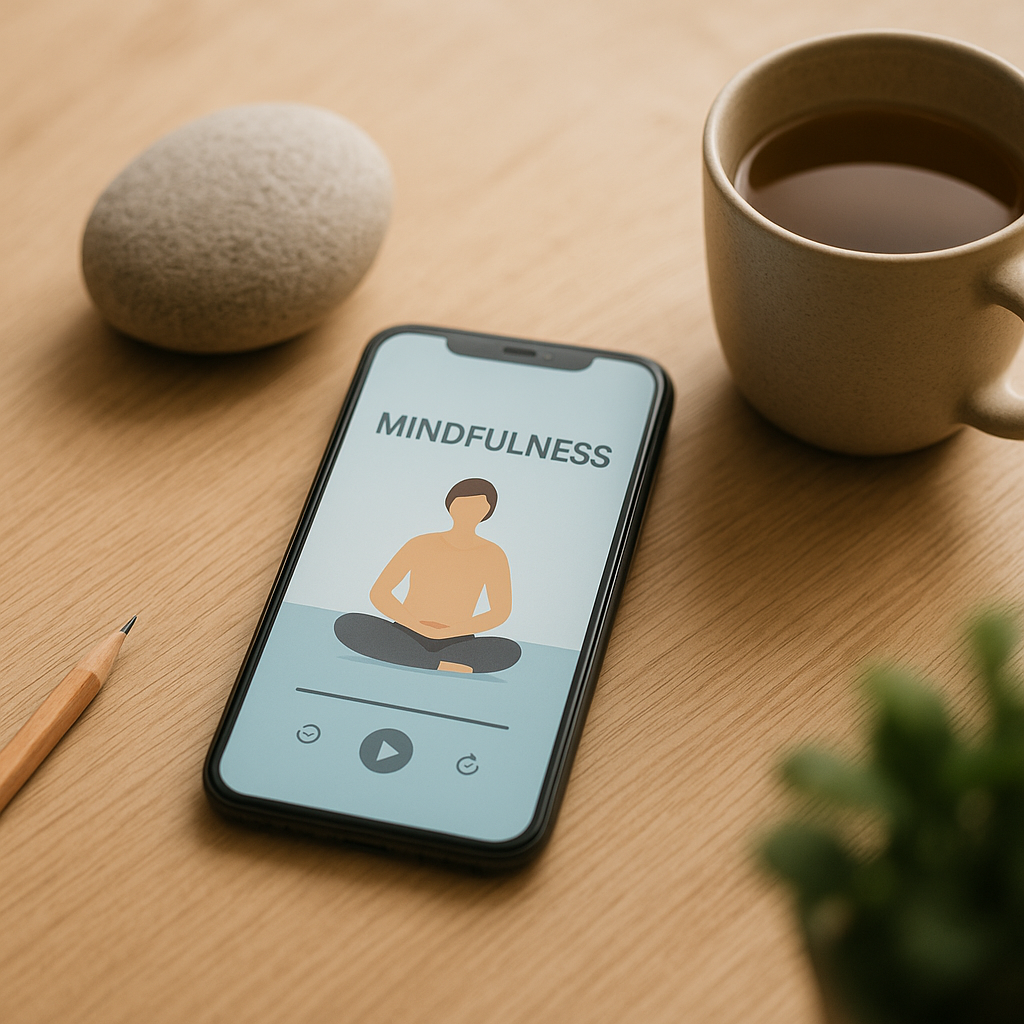Mindfulness Apps: Transforming Mental Health
Exploring the Benefits of Mindfulness Apps for Mental Health In today’s fast-paced world, mindfulness apps are gaining traction as effective tools for enhancing mental health. They offer accessible methods for managing stress, anxiety, and
Exploring the Benefits of Mindfulness Apps for Mental Health
In today’s fast-paced world, mindfulness apps are gaining traction as effective tools for enhancing mental health. They offer accessible methods for managing stress, anxiety, and overall wellbeing. This article delves into how these digital platforms can serve as user-friendly solutions to improve mental health outcomes.

The Rise of Mindfulness Apps
The increasing prevalence of mindfulness apps underscores a significant shift in how individuals approach mental health. As more people seek tools to cope with life's pressures, these applications have emerged as innovative solutions. From guided meditations to mood tracking, mindfulness apps cater to a diverse audience.
Accessibility and Convenience
One of the primary advantages of mindfulness apps is their accessibility. Users can download these apps on their smartphones and access a plethora of resources at any time and from anywhere. This convenience eliminates barriers such as travel and scheduling conflicts often associated with traditional therapy sessions.
- 24/7 Access: Users can practice mindfulness whenever it fits their schedule.
- Diverse Content: Most apps offer a variety of meditation styles, durations, and themes.
- Customization: Users can tailor their experience based on personal preferences and mental health needs.
Evidence of Effectiveness
Numerous studies have begun to document the effectiveness of mindfulness and meditation techniques on mental health. Research indicates that regular use of mindfulness apps can lead to reductions in anxiety, depression, and stress levels. One meta-analysis highlighted that digital mindfulness interventions show promise in improving mental health outcomes comparable to traditional therapy.
“The integration of technology into mental health treatment provides a unique opportunity to reach individuals who may not otherwise seek help.” - Dr. Jane Doe, Clinical Psychologist
User Engagement and Features
Mindfulness apps often employ various methods to keep users engaged and motivated:
- Gamification: Features that reward progress, such as streaks or unlockable content.
- Community Support: Forums or groups within the app where users can connect and share experiences.
- Personalized Feedback: Mood tracking that provides insights into the user’s progress over time.
Challenges and Considerations
While the benefits of mindfulness apps are evident, users should also be aware of potential challenges:
- Overreliance: Users may depend solely on apps without seeking professional help when necessary.
- Quality Variation: Not all apps are created equal; some lack scientific backing.
- Data Privacy: Users must be cautious about the personal information shared with app developers.
Popular Mindfulness Apps to Consider
With a multitude of options available, here are some popular mindfulness apps that have garnered positive reviews:
- Headspace: Known for its user-friendly interface and wide range of subject-specific meditations.
- Calm: Offers sleep stories, breathing exercises, and a relaxing soundscape.
- Insight Timer: Features thousands of free meditations and a supportive community.
Recommendations for Users
To make the most out of mindfulness apps, consider the following tips:
- Start Small: Begin with short meditations and gradually increase duration as comfort grows.
- Set Goals: Identify specific mental health goals you wish to achieve using the app.
- Stay Consistent: Regular practice can enhance long-term benefits—aim for daily use if possible.
The Future of Mindfulness in Mental Health
As the dialogue around mental health continues to evolve, mindfulness apps are likely to play an even more significant role in self-care practices. Advances in technology could lead to improved features, ultimately enhancing user experience and mental health outcomes.
Moreover, as mental health becomes less stigmatized, these apps could bridge the gap for individuals seeking help in an accessible manner. The future holds promise for integrating mindfulness seamlessly into everyday life.
Conclusion
Mindfulness apps represent a powerful tool in the arsenal against mental health issues, offering users the flexibility and resources they need to foster emotional well-being. As these digital solutions continue to evolve, they provide an essential resource for many, reinforcing the notion that taking care of one's mental health can be both accessible and effective.
Related Video
Watch This: The Power of Mindfulness Apps